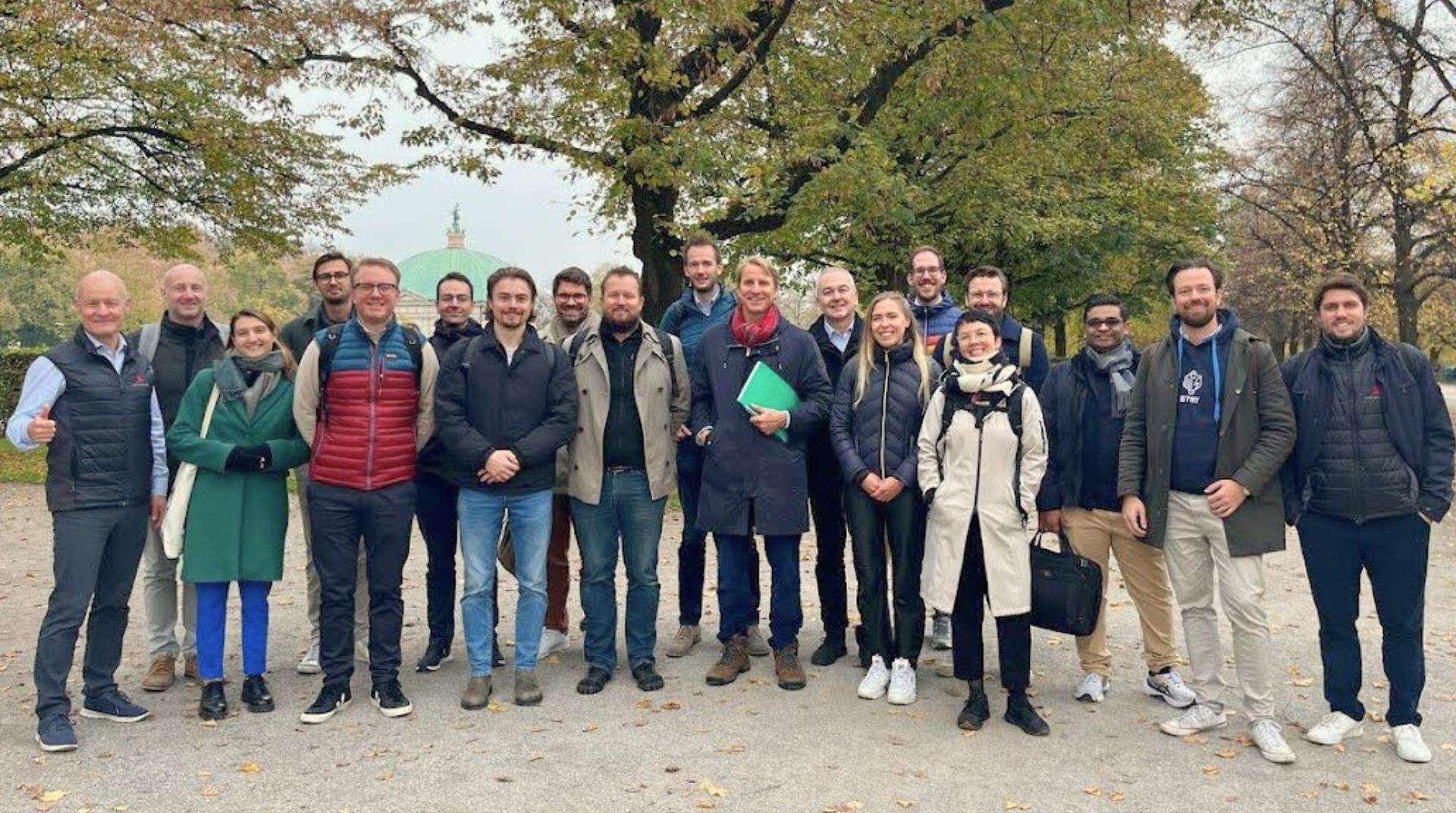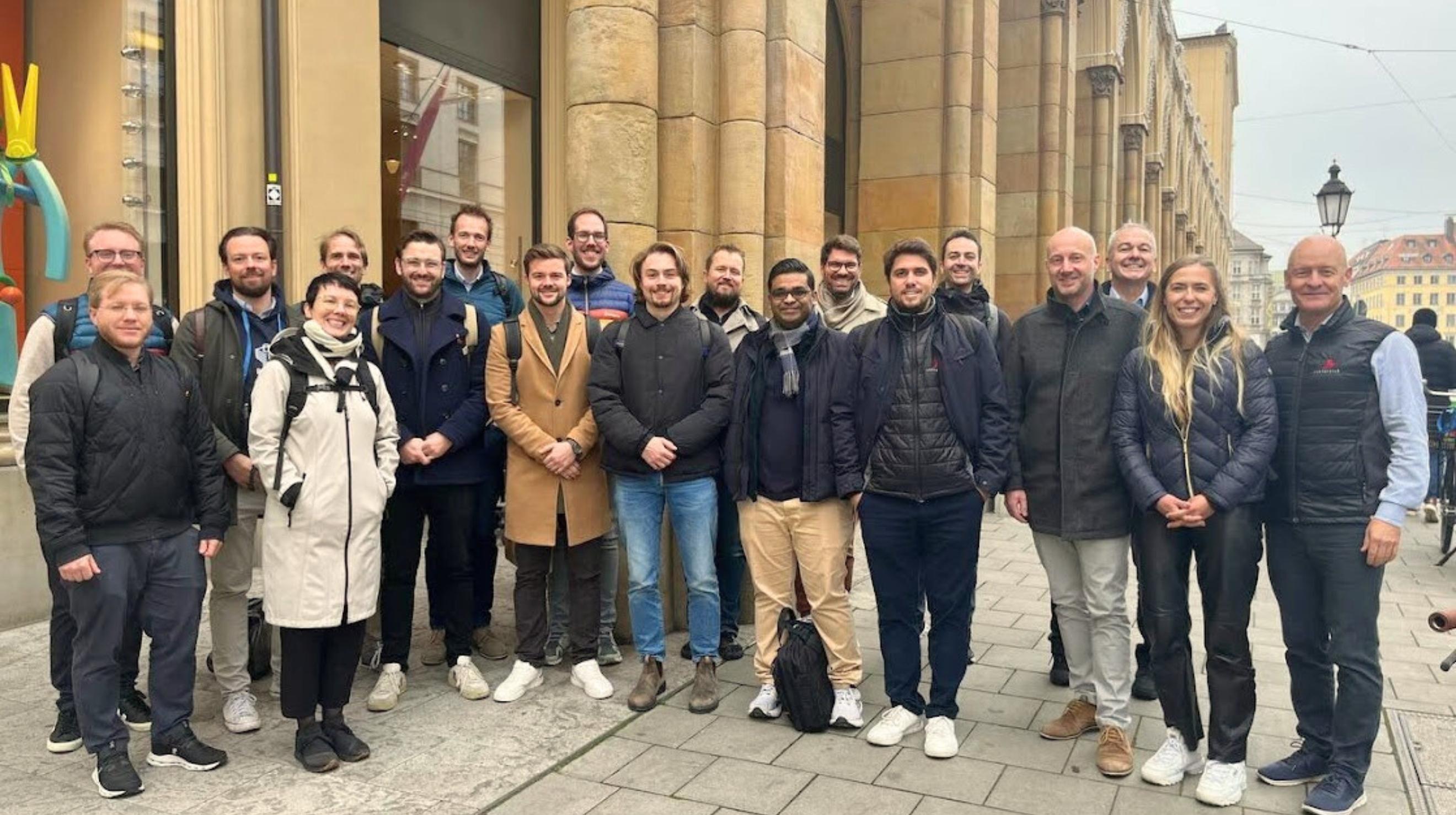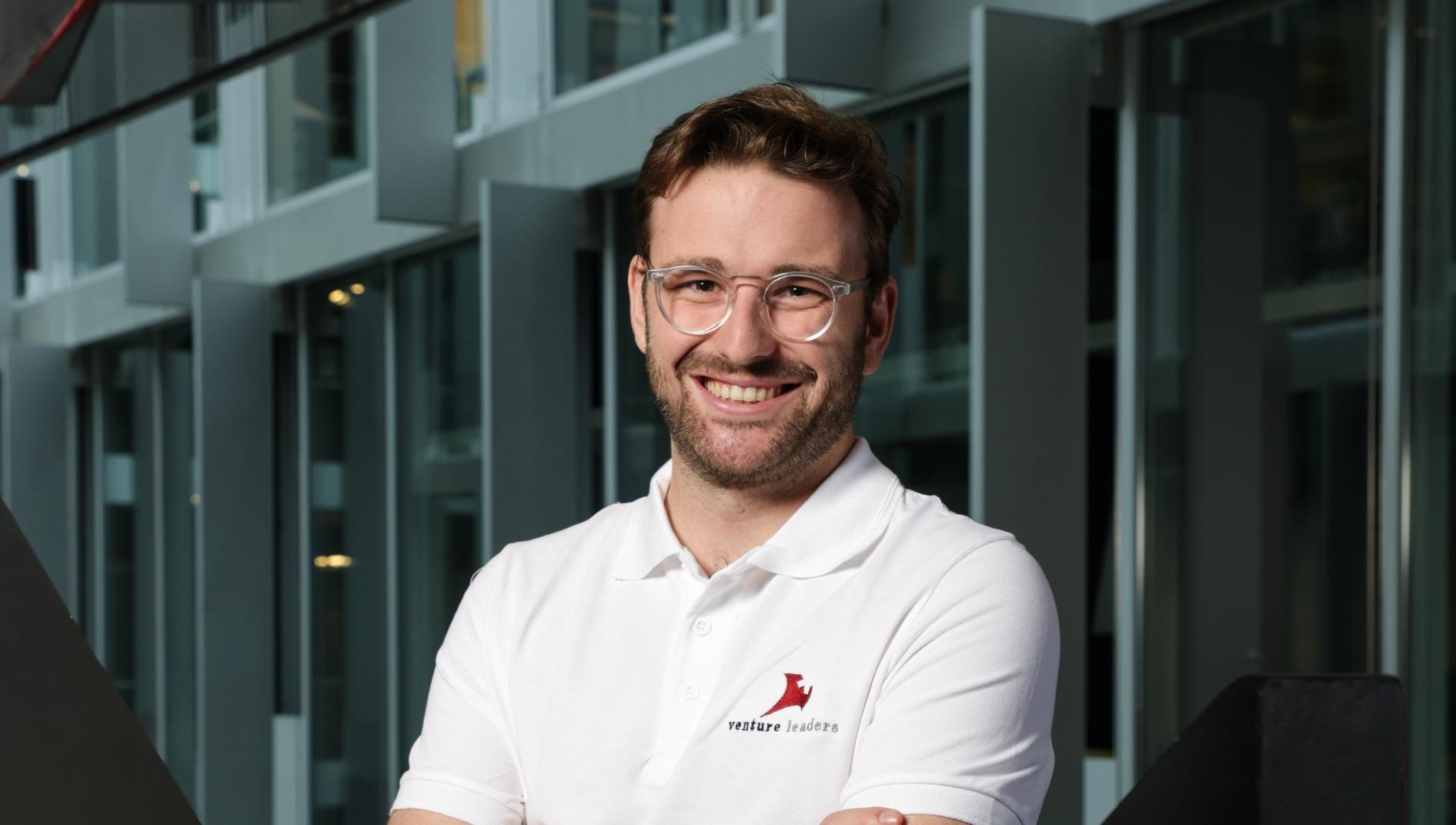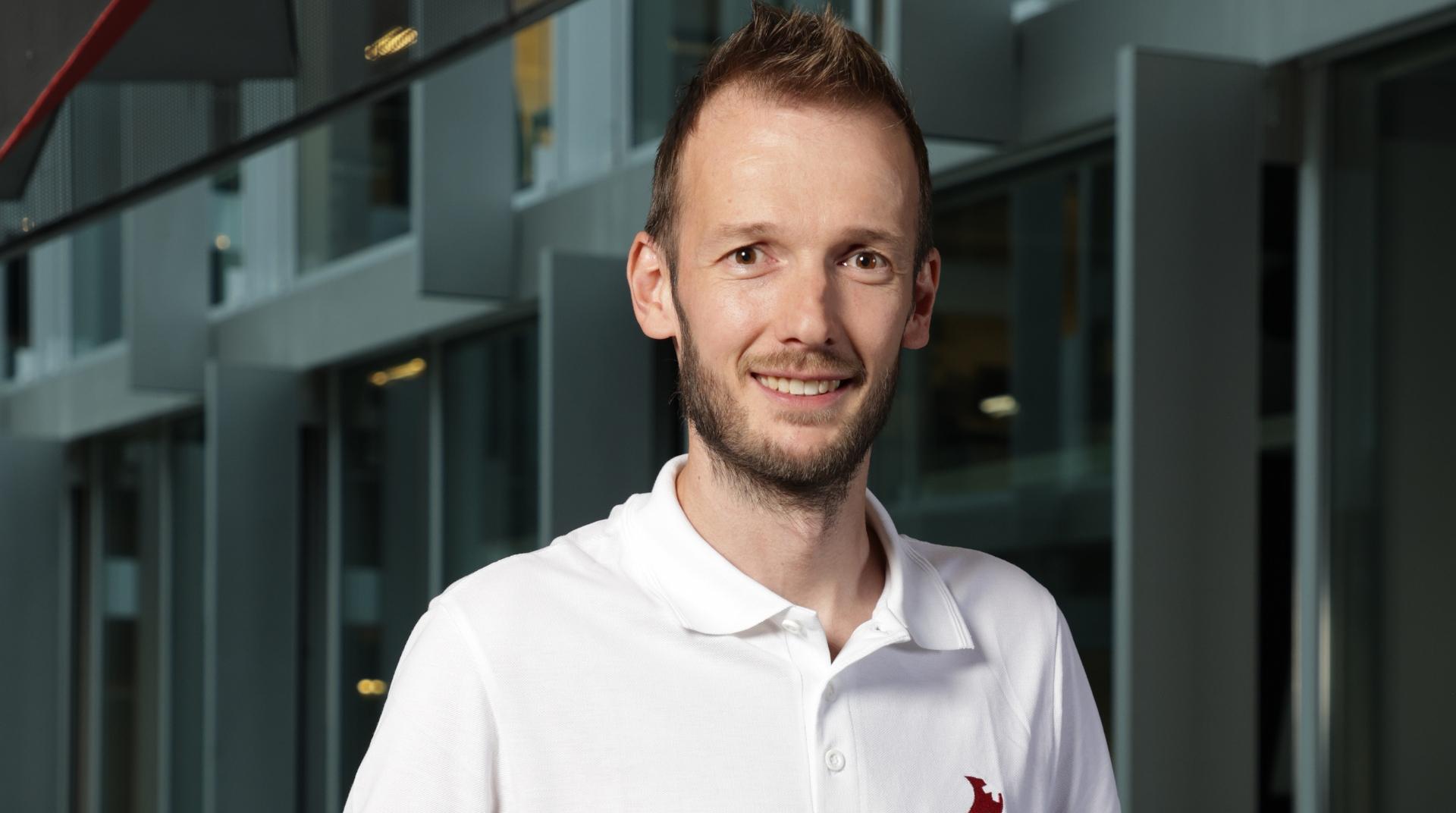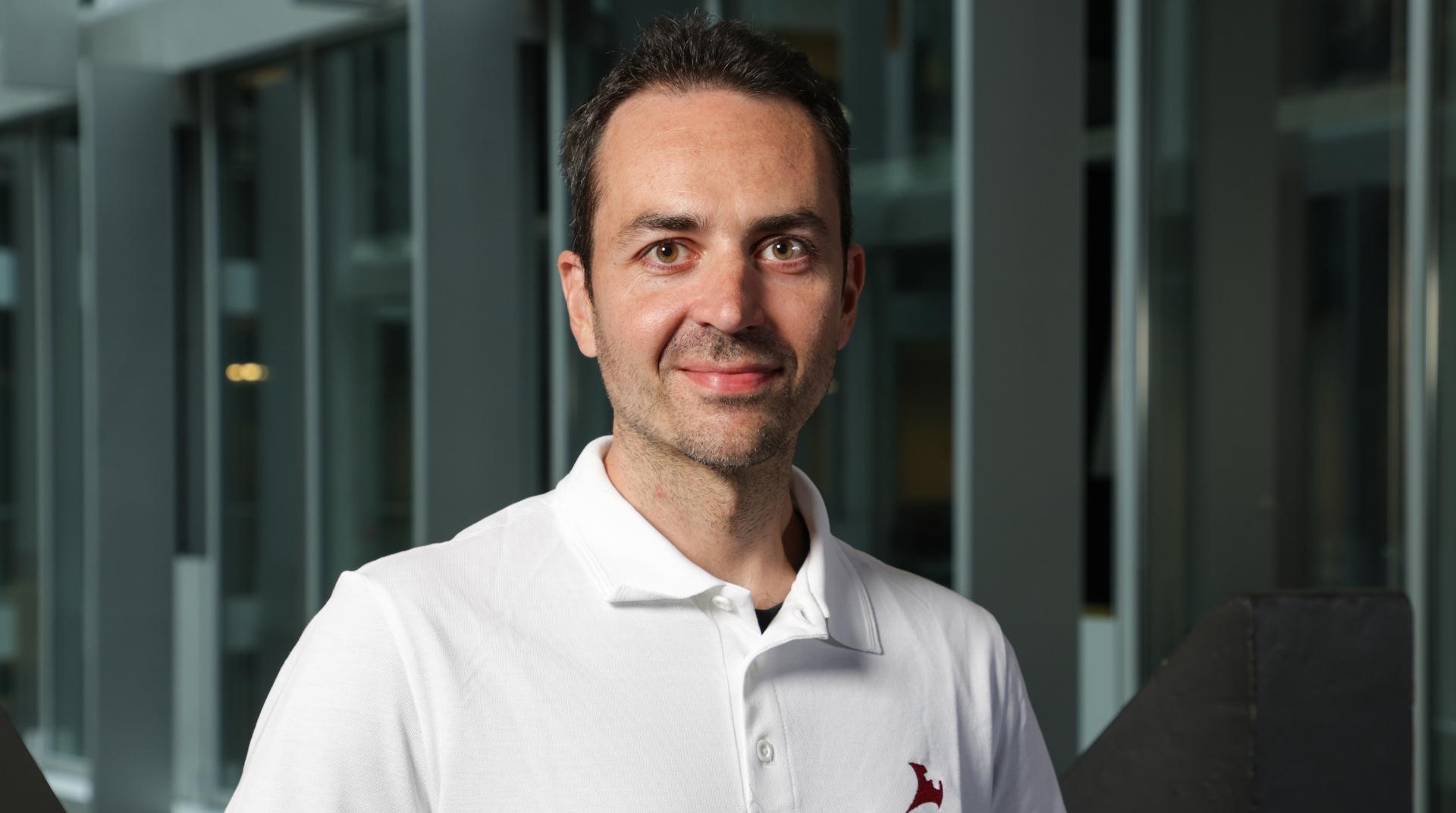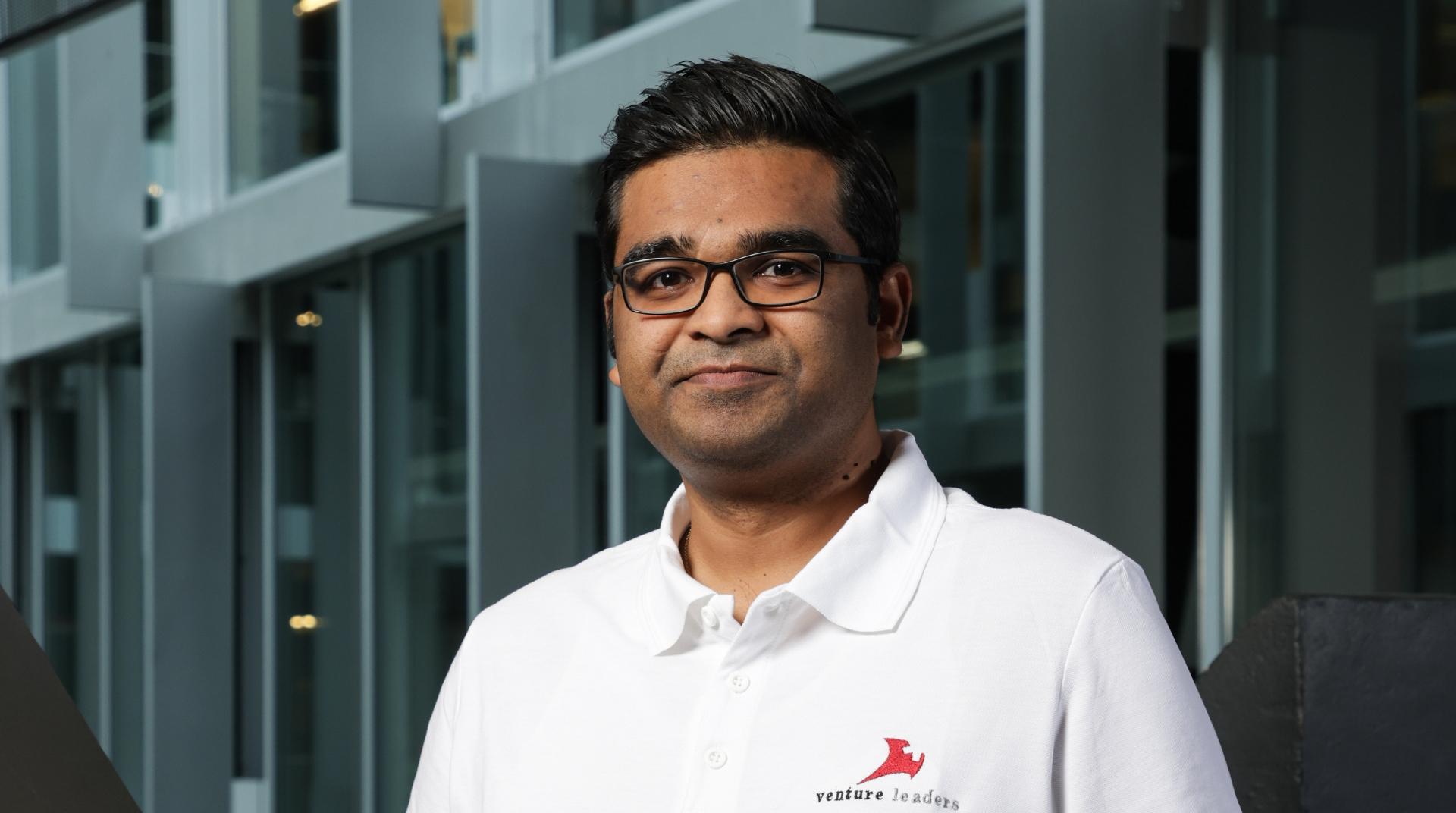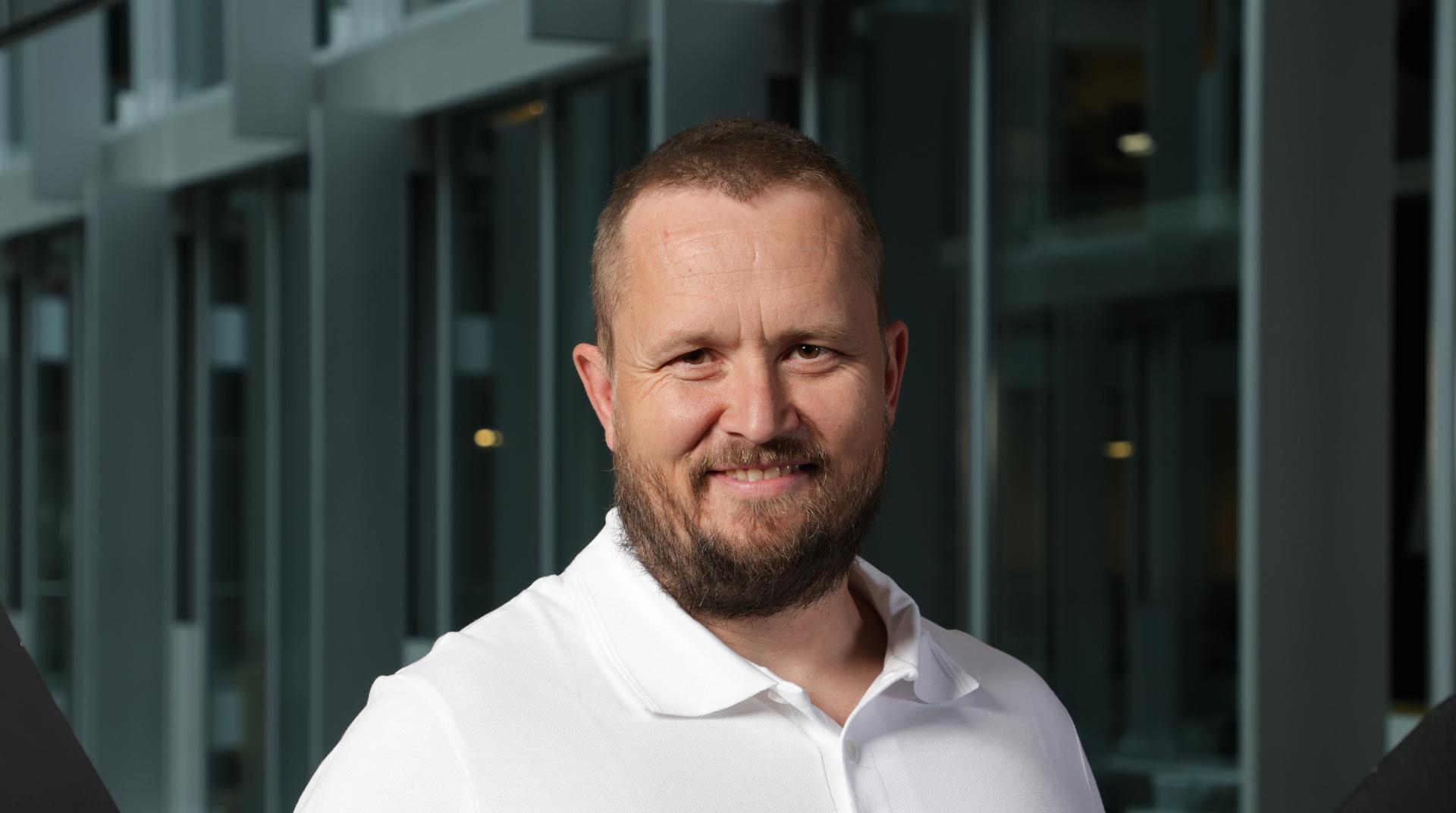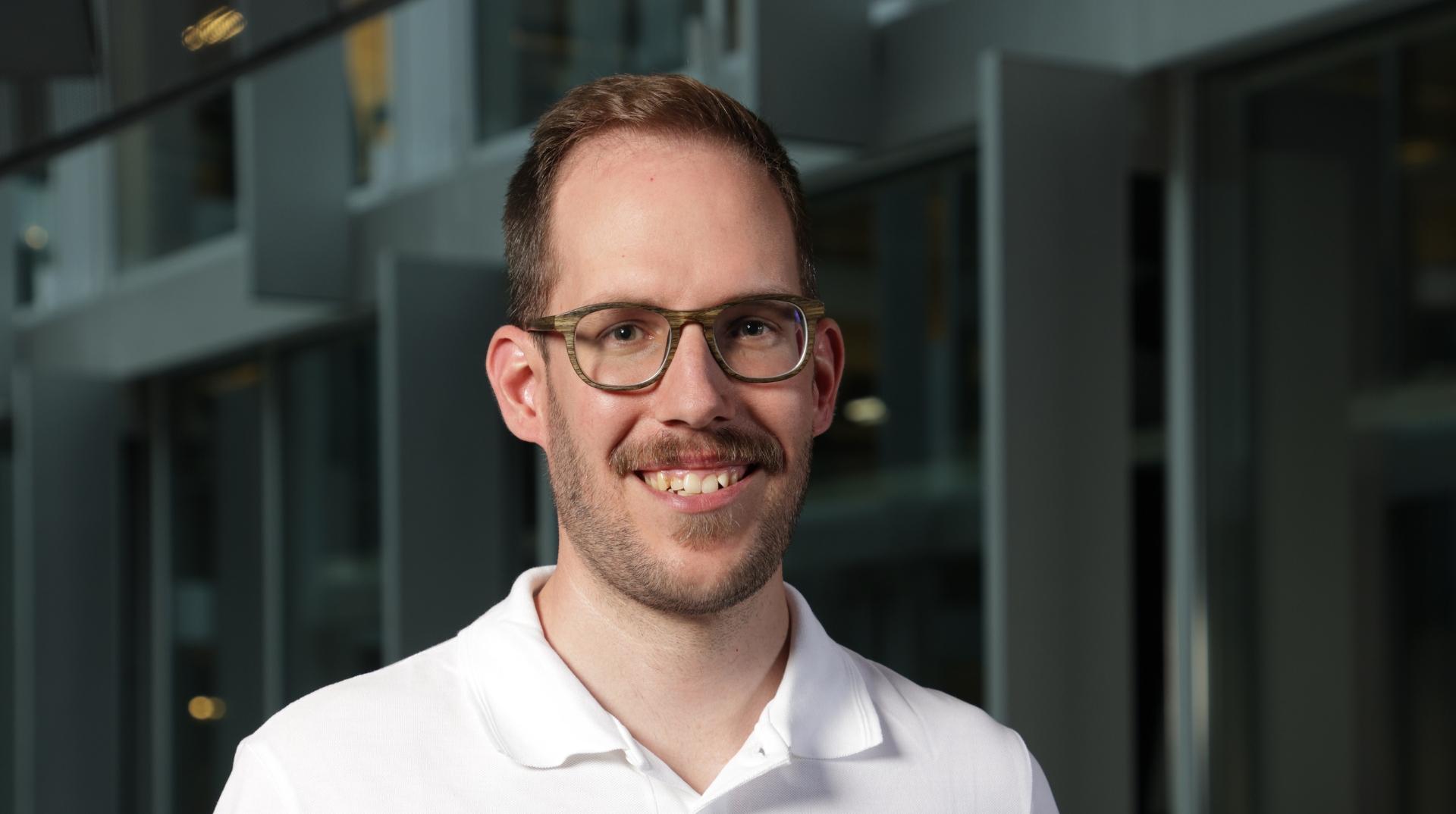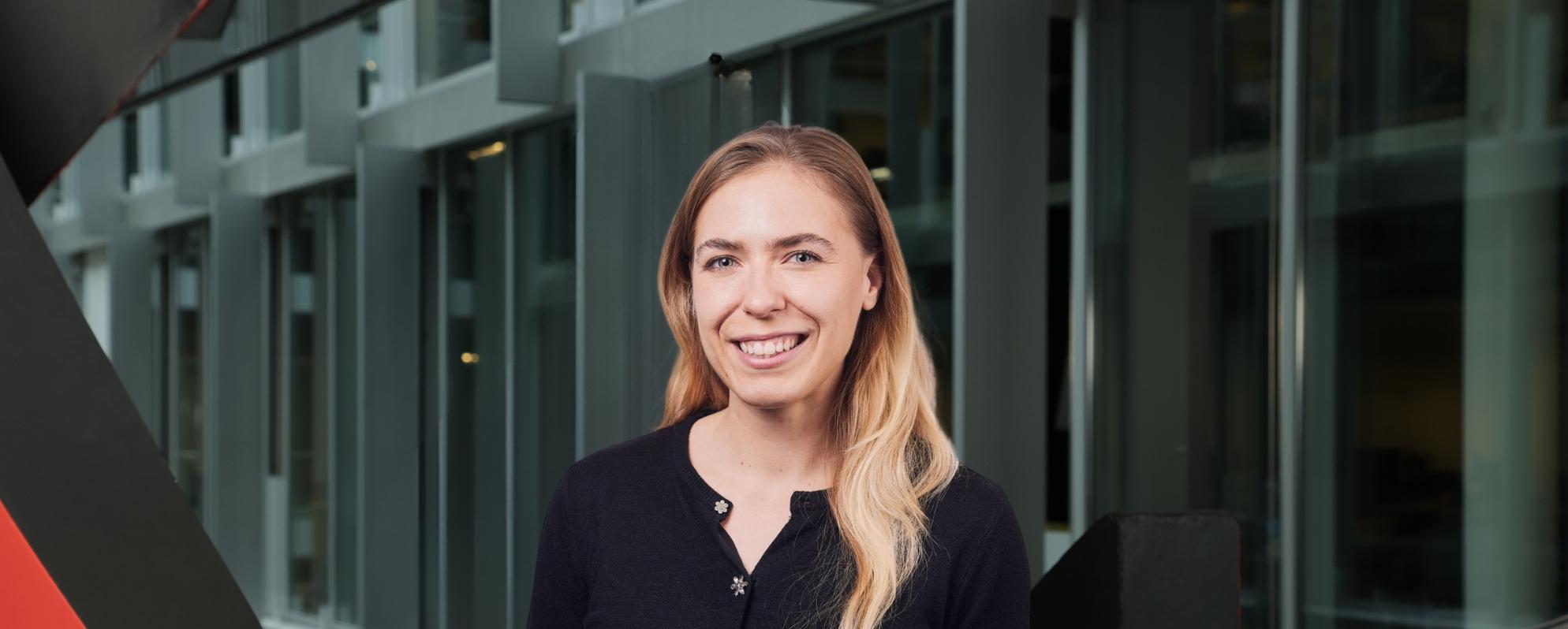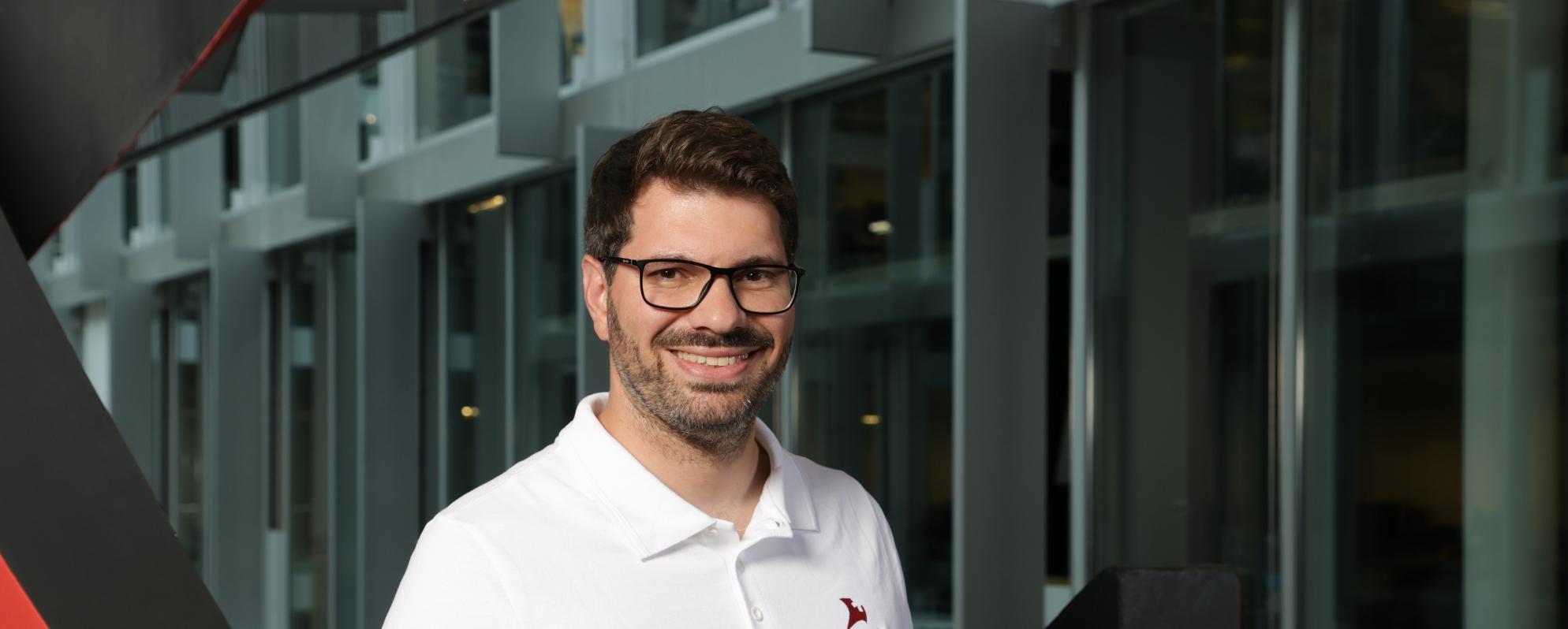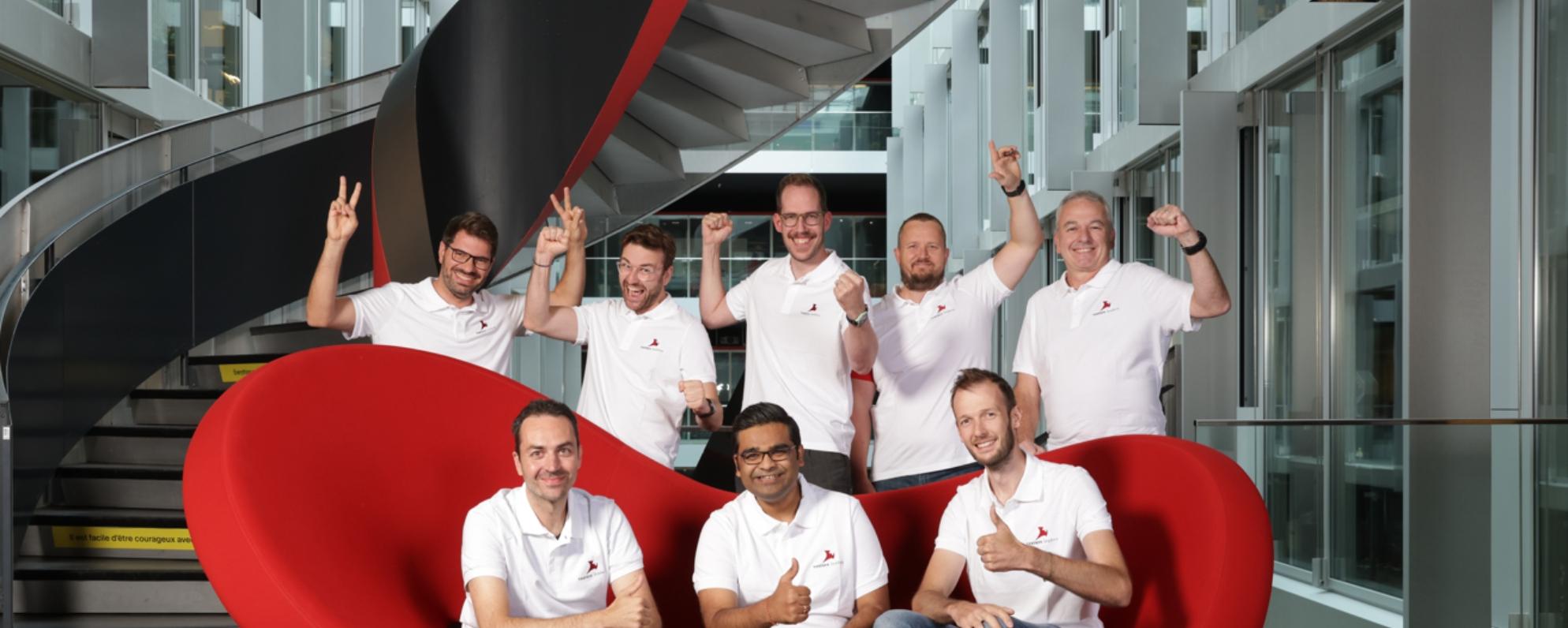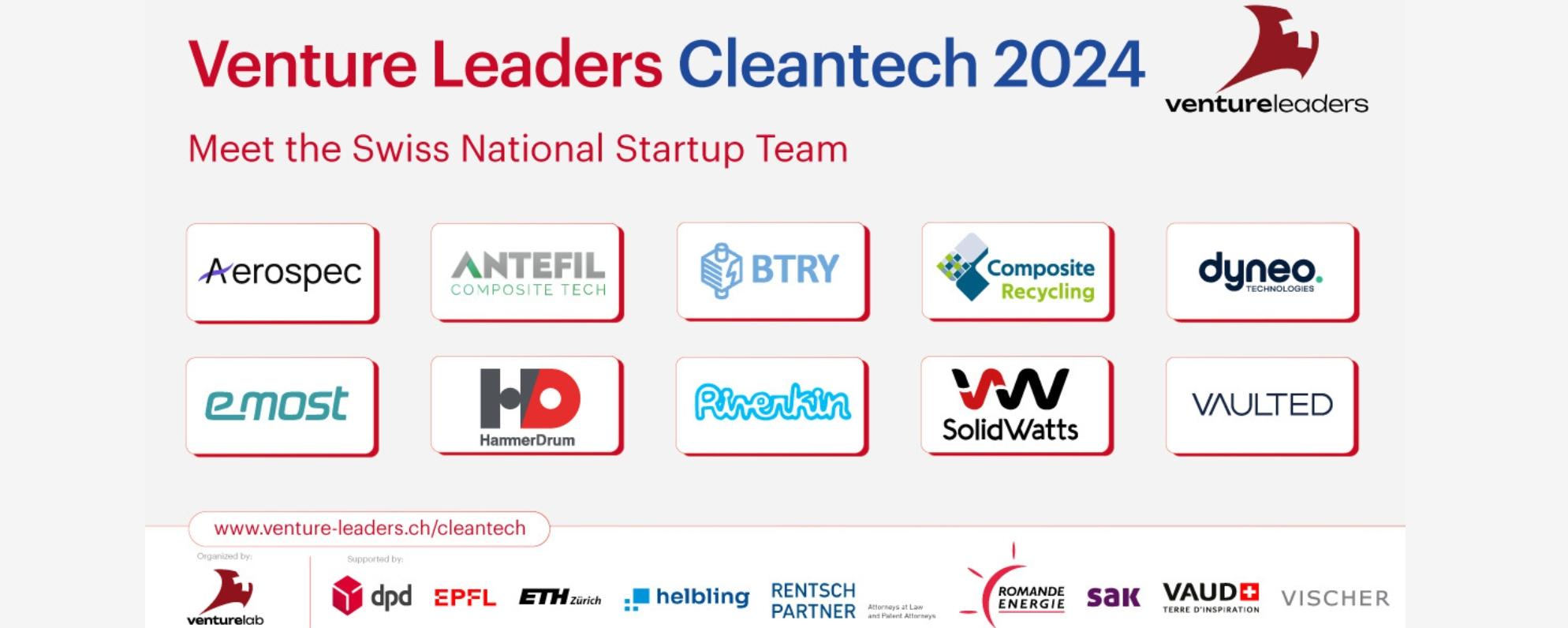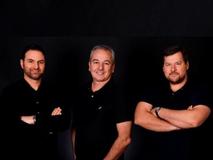Meet Guillaume Perben, Co-Founder of Composite Recycling. The Cleantech startup has developed a new recycling technology that preserves the properties of the reclaimed oil and fibres, so that they can be used for producing high-quality, high-performance new composites and decarbonized plastics. In November, Guillaume and the other nine Swiss National Cleantech Team members will travel to Munich on a business development and investor roadshow.
 Name: Guillaume Perben
Name: Guillaume PerbenLocation: Ecublens, Switzerland
Nationality: Swiss, French
Graduated from: ISG Institut Supérieur de Gestion (France, USA, Japan)
Job title: CEO and Co-Founder
Number of employees: 6
Money raised: 2M CHF
First touchpoint with Venturelab: Venture Kick in 2021
Can you tell us who your product or solution helps, and how?
Composite Recycling has invented a breakthrough new technology to recycle glass fibre-reinforced plastics (like that found in wind turbine blades, boat hulls, auto and airplane parts, etc) into high-quality reclaimed glass fibres and oil, using a patent-pending thermolysis process. For companies or municipalities who must today send their waste to landfill, our recycling service provides a viable, economical and sustainable alternative. Companies who want to incorporate recycled content into their products can purchase our reclaimed outputs to drop into their current production processes for making even high-performance new composites and decarbonated plastics.
What market are you addressing and what is the potential of your startup in that market?
Today somewhere between 500,000 and 700,000 tonnes of composite waste are produced annually in the EU alone, the vast majority of which is landfilled. With this volume growing every year, the status quo is no longer an option, as shareholder expectations and consumer demands rise and as EU waste disposal regulations take effect (such as in Austria where landfilling composites is already illegal). Our goal is to help bring circularity to the composites industry by diverting all composite waste away from landfills and into new, high-value composite products. New fibreglass production is USD 28B annually and growing (7% CAGR). Today almost none of it contains recycled content, and manufacturers are clamoring for greener options.
How and where did you come up with the idea for your startup?
In 2020, my co-founder Pascal Gallo and I connected at a birthday party for our sons. I shared my concern about how to responsibly dispose of our sailboat when the time came, as landfilling seemed to be the only option. With my background in sailing and Pascal's expertise in composites and thermolysis, a process for recycling fiberglass, we realized we could address a significant issue in the marine industry. This led us to launch Composite Recycling.
What do you expect from the Venture Leaders Cleantech roadshow, and how will it help you achieve your vision?
The timing of the roadshow in Southern Germany is ideal for us. We are already in close contact with industries and partners in the Upper Austria region, where regulations already entirely prohibit the landfilling and incinerating of composite waste, so the pressure is very high. We know Germany is going to follow suit with the same regulation at some point, and so the opportunity to meet partners, and investors, and develop our network comes at a perfect time.
What are your team’s key achievements to date?
In the three years since our launch, we've exceeded all expectations. Our solution has been warmly embraced by the marine and composites industries, earning us prestigious awards like JEC World and METSTRADE. This success reflects the strength of our team, who have navigated startup challenges and brought us to this point. We've validated our technology, partnered with industry leaders, and are set to unveil our first industrial-scale mobile recycling unit soon. We're also supported by a robust network of over 15 strategic partners and a pipeline of major clients across Europe, positioning us well for the next phase of growth.
What is the most challenging and rewarding aspect of being a founder?
Being a founder is so thrilling and fulfilling – it’s quite a rush when you win a prestigious prize or sign a major contract, and when we see such enthusiasm for our technology. But as the company grows, it’s also a major responsibility. It’s no longer just about the idea, the founders, and getting to market – we must also honor our commitments to shareholders and employees. That makes the challenging times that much more weighty. You also receive a lot of advice from well-meaning people, but you’re the one who is ultimately responsible.
What is the most important lesson you have learned as a founder?
Although it’s not a new insight, getting the right people on board is so crucial. More than the idea, more than the tech, more than the funding, at the end of the day, it all comes down to the team of people who are working towards that common goal. It is not easy to assemble the right team, and adjustments must be quick, especially in a startup where money is tight.
What is your favourite productivity hack/tool and why?
Getting out in nature. Even when it seems like there is not enough time for a workout or to take a vacation, I see it as critical for maintaining my productivity and replenishing the energy needed to keep up with the crazy demands of running a scaleup! A ride on my mountain bike in the forest behind my house is my preferred regular activity, and then at least once a year, I need to go sailing for a couple of weeks, with a couple of overnight crossings far from the coast. The best stress-management tool of all is getting out on the water.
What was your dream job when you were a child?
I had several dream jobs, and they all involved sailing or flying. So I got my license to do both, but they have remained hobbies, and I made my career in the management of businesses. The common point I find is that whether you go to sea, or up in the air, you’re not looking to take risks: but you must manage them. You are responsible for how you deal with the weather, how you pick your crew, your equipment, and the timing of your actions. It is all about management and decision-making.
Composite Recycling SA: Closing the loop on composite materials
Composite materials--made by combining resin with fibers (carbon or glass)--have revolutionized many industries: automotive, aerospace, marine, wind, etc. These materials are incredibly light, dur... Read more




